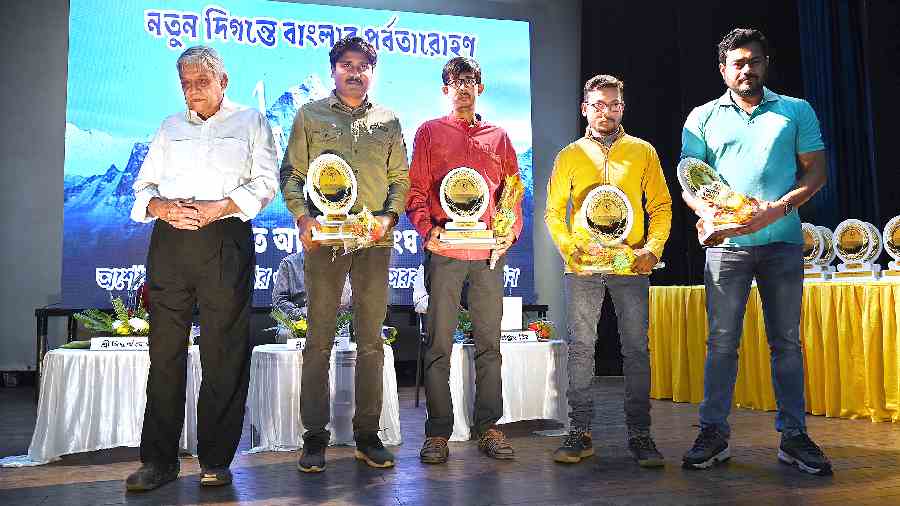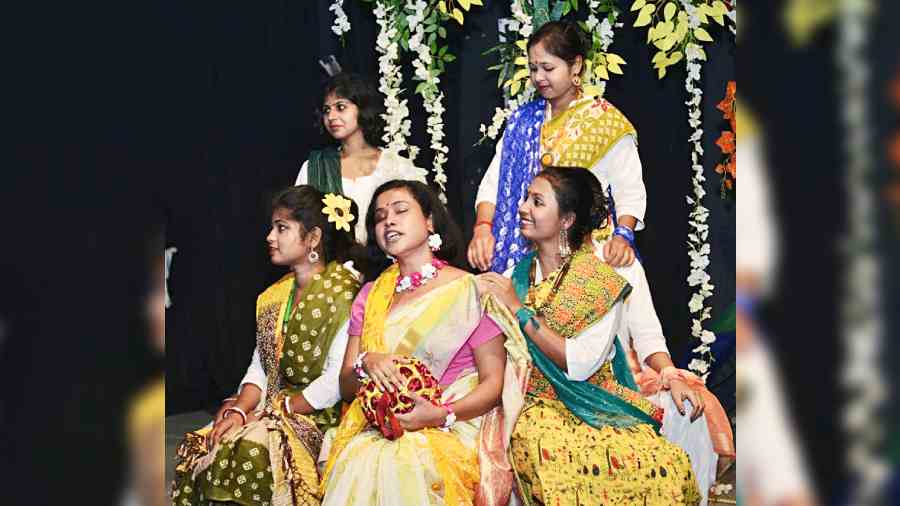- A couple who are visually impaired are raising their child, earning a living through theatre
- A 19-year-old girl who has grown up facing caste discrimination and struggled to go to college is part of a theatre troupe that talks about their everyday struggles
Individuals with disabilities who “have a human right not to be discarded like waste” and those who have faced oppression because of their gender or social status have taken to the stage to challenge the norms of the society that often seeks to exclude them.
The cast of 26 came together to stage a play that premiered on Saturday on the occasion of International Day of Persons with Disabilities.
It is part of British Council’s ongoing India/UK Together, a season of culture, that uses art to address and create awareness for shared global challenges, including inclusion.
The production has been brought together by Jana Sanskriti, a centre for theatre of the oppressed, that has been working with the financially and socially deprived, in collaboration with Graeae, UK’s disability-led theatre company, theatre maker Tim Wheeler and the British Council.
“People with and without disabilities performed together on stage to give a social statement that people’s attitude towards disability should change and be more inclusive. Theatre has the power to create a community that is inclusive and human,” said Sanjoy Ganguly, director, Jana Sanskriti Centre for Theatre of the Oppressed.
The play, which had people who are visually challenged, on wheelchairs or have hearing impairment, explores how access can be part of the production. It uses a sign language interpreter who is on the stage throughout.
The play commemorates the centenary year of T.S. Eliot’s The Waste Land along with the Mahabharata and Tagore.
“We hope it will create a new idiom of inclusive theatre in India. It democratises art and performances where disabled artists not just enjoy or consume but create a production themselves,” said Debanjan Chakrabarti, director, East and Northeast India, British Council.
The play aesthetically makes no compromises and aims to create awareness and sensitivity on equality, diversity and inclusion.
“Disabled people globally are marginalized from society. We are not second class citizens nor should we be denied the same opportunities our non-disabled peers have in education, employment and society. We have a human right not to be discarded like waste,” said Jenny Sealey, artistic director of Graeae.
In the UK, she said, there was a tradition of “non-disabled people playing disabled characters” and disability arts activists fought for this to be changed.
“Now, disabled characters in plays are played by disabled actors. Mainstream theatre also casts us in plays that do not have a disabled character. The visibility of disabled people in the mainstream theatre world has challenged people’s perceptions of disabled people and made them aware of possibilities, which leads to attitudinal shifts and acceptance,” she said.
Wheeler, co-founder of Mind the Gap theatre company in the UK, said that allies like Jana Sanskriti and British Council help to “amplify our voices to build a fairer, more inclusive society”.
The next show is at ICCR on December 8 at 6pm.
Success story

Picture by Bishwarup Dutta
The recent summiting of two challenging Himalayan peaks by teams from Bengal was celebrated at an auditorium in Kolkata on Saturday. Siddhartha Ghosh, a veteran mountaineer, with the members of the team — (second from left) Ashish Gupta, Upal Chakrabarti, Pradip Bar and Rajsekhar Maity — that conquered Nanda Devi East in September 2019. The four were among those felicitated at the programme, Asokekumar Sarkar and Adhipkumar Sarkar Smriti Samman Pradan, which also looked back at the journey of mountaineering in Bengal.
